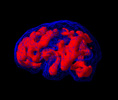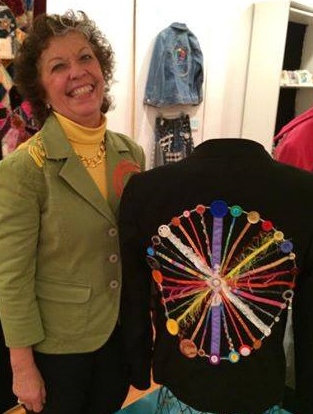A CASIGY™ IS . . .
Creative, Curious, Complex
Acutely Aware
Super-Sensitive
Intense, likely Introverted, often Independent Thinking, possibly Intuitive and/or
Gifted. Does This Describe
You?
Then you may be a CASIGY™!
Do you have a vivid imagination? — pervasive curiosity? —a strong need to know that’s not easily satisfied? —a complex inner life? Do you notice many things that others don’t? Do you have heightened senses: taste, touch, smell, hearing, sight? Are you quickly bored? Are you easily overstimulated? Do you have intense physiological or emotional responses? Do you have a need for solitude? Do your best thoughts often come when you’re alone? Do you think quickly, often on several tracks at once? Do you thrive on challenge? Do you have extraordinary abilities AND vulnerabilities? The more of these questions you answered YES to, the more likely it is that you might find that the acronym CASIGY™ describes you.
inner life? Do you notice many things that others don’t? Do you have heightened senses: taste, touch, smell, hearing, sight? Are you quickly bored? Are you easily overstimulated? Do you have intense physiological or emotional responses? Do you have a need for solitude? Do your best thoughts often come when you’re alone? Do you think quickly, often on several tracks at once? Do you thrive on challenge? Do you have extraordinary abilities AND vulnerabilities? The more of these questions you answered YES to, the more likely it is that you might find that the acronym CASIGY™ describes you.  But wait; did you know that as a CASIGY™, your central nervous system is more finely tuned than most? As one health professional said to me as he stitched the end of my finger, “Your nerve endings must be right on the surface.” Yes, indeed; about 20% of every species have a significantly more sensitive central nervous system, according to Elaine Aron. She did research about high sensitivity and created the term, Highly Sensitive Person, HSP for short. Gifted people are described as the most intelligent 3 to 10% of the population. High sensitivity is widely identified as a common characteristic of Gifted people. Elaine Aron takes issue with this perspective, as she has encountered many highly intelligent people, including her husband, who are not highly sensitive. Maybe those gifted people who are not highly sensitive don’t have the same difficulties in life as those who are sensitive, or don’t seek self- help materials, or don’t come for counseling; all I know is that in the literature I have encountered, and in my clinical experience, gifted people are likely the most highly sensitive of us all.
But wait; did you know that as a CASIGY™, your central nervous system is more finely tuned than most? As one health professional said to me as he stitched the end of my finger, “Your nerve endings must be right on the surface.” Yes, indeed; about 20% of every species have a significantly more sensitive central nervous system, according to Elaine Aron. She did research about high sensitivity and created the term, Highly Sensitive Person, HSP for short. Gifted people are described as the most intelligent 3 to 10% of the population. High sensitivity is widely identified as a common characteristic of Gifted people. Elaine Aron takes issue with this perspective, as she has encountered many highly intelligent people, including her husband, who are not highly sensitive. Maybe those gifted people who are not highly sensitive don’t have the same difficulties in life as those who are sensitive, or don’t seek self- help materials, or don’t come for counseling; all I know is that in the literature I have encountered, and in my clinical experience, gifted people are likely the most highly sensitive of us all.  often introversion. Each one of these characteristics by itself can be challenging to live with. Put them all together, and it can seem impossible to live a normal life. But what is normal? When you live your whole life outside the norm, must normalcy be determined by the larger group or even by your tiny subgroup, or can you set your own definitions of normalcy? We all start life with normalcy being defined by those around us; part of our growth and development can hopefully be growing so we are each able to identify for ourselves what is ‘normal’ for each of us.
often introversion. Each one of these characteristics by itself can be challenging to live with. Put them all together, and it can seem impossible to live a normal life. But what is normal? When you live your whole life outside the norm, must normalcy be determined by the larger group or even by your tiny subgroup, or can you set your own definitions of normalcy? We all start life with normalcy being defined by those around us; part of our growth and development can hopefully be growing so we are each able to identify for ourselves what is ‘normal’ for each of us.  Another way of looking at this is that if you were a CASIGY™ horse you would be more like a race horse than a plow horse. A race horse is internally driven to race, thrives on racing and pines when not given a chance to race. A race horse also needs peace and quiet between races, startles easily, and can be flighty. Our society has a much greater need for plow-horse type people than for race horse type people. This creates great pressure, even if it’s subtle, to fit in to meet those needs. But if you’re born a CASIGY™ and try to be “normal”, you’ll be about as happy and well-adjusted as a race horse hooked up to a plow.
Another way of looking at this is that if you were a CASIGY™ horse you would be more like a race horse than a plow horse. A race horse is internally driven to race, thrives on racing and pines when not given a chance to race. A race horse also needs peace and quiet between races, startles easily, and can be flighty. Our society has a much greater need for plow-horse type people than for race horse type people. This creates great pressure, even if it’s subtle, to fit in to meet those needs. But if you’re born a CASIGY™ and try to be “normal”, you’ll be about as happy and well-adjusted as a race horse hooked up to a plow.  driven by your creativity. Creative people invent things or have ideas about what you want to make or invent (or what you want someone else to invent). You often find that originality and uniqueness is very important to you. You want to draw, paint, cook, sew, knit, carve, write or make music, dance, take photographs, whittle, weld or in general, create things. Creative people often feel like you’re living in a desert if you are not involved in a creative process somewhere in your life.
driven by your creativity. Creative people invent things or have ideas about what you want to make or invent (or what you want someone else to invent). You often find that originality and uniqueness is very important to you. You want to draw, paint, cook, sew, knit, carve, write or make music, dance, take photographs, whittle, weld or in general, create things. Creative people often feel like you’re living in a desert if you are not involved in a creative process somewhere in your life.  Introverts get energized by solitary pursuits and enervated by being around large groups of people. Introverts have a few close friends, while extroverts often have many friends and acquaintances. Introverts often do more listening than talking, while extroverts love to talk. Introverts use different, longer, neuron pathways in the brain, so that it takes you longer to complete your thoughts. This may explain your dislike of being interrupted and also sometimes creates what I call “delayed intelligence” when you (hours or days) later think of what you wish you could have said. In the United States a little less than half of the population is extraverted, which means a little more than half is introverted. However, with highly sensitive people and in the gifted population, about 70 -75% of gifted people are introverts and only 25 – 30% are extraverts.
Introverts get energized by solitary pursuits and enervated by being around large groups of people. Introverts have a few close friends, while extroverts often have many friends and acquaintances. Introverts often do more listening than talking, while extroverts love to talk. Introverts use different, longer, neuron pathways in the brain, so that it takes you longer to complete your thoughts. This may explain your dislike of being interrupted and also sometimes creates what I call “delayed intelligence” when you (hours or days) later think of what you wish you could have said. In the United States a little less than half of the population is extraverted, which means a little more than half is introverted. However, with highly sensitive people and in the gifted population, about 70 -75% of gifted people are introverts and only 25 – 30% are extraverts.  Independent Thinkers, whom I like to call Mavericks, often perceive the world differently than others do. They also have a deep sense of an inner directive, and a need for their lives to conform to that inner directive. They have a different inner inner rhythm and they need to move to it. They are divergent thinkers, whose mind has one image, thought, feeling or idea that sparks another and then another, leading them on pathways that may not have existed until they discover them. This can cause trouble for a student in a classroom or an employee in a work place that wants or needs people to stay inside narrow or super-well defined limits. It can breed and grow the sense of being a MisFit who doesn’t belong. It can lead to conflict with the people in charge especially when they don’t understand or value this way of thinking, feeling or being in the world. In this kind of environment, it can lead to declining performance at school or work. Unless, of course, the classroom or the workplace is welcoming and valuing of this phenomenon and is well suited to a CASIGY who is an independent-thinking Maverick. Then this divergent thought pattern can open up new ways to have fun, ways to innovate in any field of endeavor, and new solutions to the world’s problems that conventionally-minded people might not recognize even if they stumble upon them.
Independent Thinkers, whom I like to call Mavericks, often perceive the world differently than others do. They also have a deep sense of an inner directive, and a need for their lives to conform to that inner directive. They have a different inner inner rhythm and they need to move to it. They are divergent thinkers, whose mind has one image, thought, feeling or idea that sparks another and then another, leading them on pathways that may not have existed until they discover them. This can cause trouble for a student in a classroom or an employee in a work place that wants or needs people to stay inside narrow or super-well defined limits. It can breed and grow the sense of being a MisFit who doesn’t belong. It can lead to conflict with the people in charge especially when they don’t understand or value this way of thinking, feeling or being in the world. In this kind of environment, it can lead to declining performance at school or work. Unless, of course, the classroom or the workplace is welcoming and valuing of this phenomenon and is well suited to a CASIGY who is an independent-thinking Maverick. Then this divergent thought pattern can open up new ways to have fun, ways to innovate in any field of endeavor, and new solutions to the world’s problems that conventionally-minded people might not recognize even if they stumble upon them.
Gifted people are highly intelligent, often creative, curious, complex, highly sensitive, intense, introverted people. Gifted people may also have asynchronous development—high levels of ability in some areas that far outstretch the norm, and at the same time may have other areas that are average or others that are below the norm. This may also be connected with what is called being Twice Exceptional (2E) or having Multiple Exceptionalities. The cognitive dissonance that this variance in levels of ability can create may be tremendous, and may have a profound ripple  effect in the lives and families of gifted or 2E people.
effect in the lives and families of gifted or 2E people.
The combination of the above situations often creates a great chasm of disconnect between you and others around you, sometimes even those in your families. This is especially true when none or only part of this asynchronous development is recognized and dealt with.
 Don’t let me forget to mention that when CASIGYs™ struggle with mental health issues, you sometimes have difficulty getting help that is relevant to your needs. You find that you may be misdiagnosed, misunderstood, and mislabeled. This only adds to the list of concerns you started with, and intensifies your anxiety, depression, and low self esteem or whatever it is that is haunting you. And if you, your child or teen or other loved one is 2E, or Twice Exceptional, then all of the above gets compounded.
Don’t let me forget to mention that when CASIGYs™ struggle with mental health issues, you sometimes have difficulty getting help that is relevant to your needs. You find that you may be misdiagnosed, misunderstood, and mislabeled. This only adds to the list of concerns you started with, and intensifies your anxiety, depression, and low self esteem or whatever it is that is haunting you. And if you, your child or teen or other loved one is 2E, or Twice Exceptional, then all of the above gets compounded.
Ok, enough already!
By now it is painfully obvious that the characteristics that many others believe give CASIGYs™ an unfair advantage in life, instead may make your life more complex and more challenging than most.
But it’s NOT all bad news!
You’ll be happy to know that
Being A CASIGY™ Doesn’t Have to be a Downer
The good news is that your Awareness, Creativity, Curiosity, Complexity, Sensitivities, Intensities and Vulnerabilities don’t have to run or ruin your life. You CAN become fully alive and fulfill your true CASIGY™ destiny.
But how do you do that?
There are specific skill sets that can help CASIGYs™ heal, thrive and prosper. These skill sets include

- finding the Magic in being a MisFit!
- learning to cope with your exceptionalities
- healing from your wounds
- maximizing your CASIGY™ strengths transforming your liabilities into your greatest assets
- Balancing your CASIGY™ awareness, sensitivity, creativity, complexity, intensity and over-excitability.
- Recovering from the adversity that troubles you while harvesting the benefits hidden deeply within it.
- Discovering your Purpose and Mission and fulfilling your unique Destiny.
Sharon M. Barnes, MSSW, LCSW is attuned to your unique CASIGY™ needs.
She’ll help you release your creativity and channel it toward your goals. She’ll help you to develop skills and strength that will enhance your inner life, relationships and work. She provides powerful Tips, Tools and Training to help you discover your own CASIGY™ pathway to joy, healing and fulfillment. Sharon can accompany you on your pilgrimage through the wilderness of self-discovery until you reach your chosen Destination of Delight, if you choose to have her do so.

